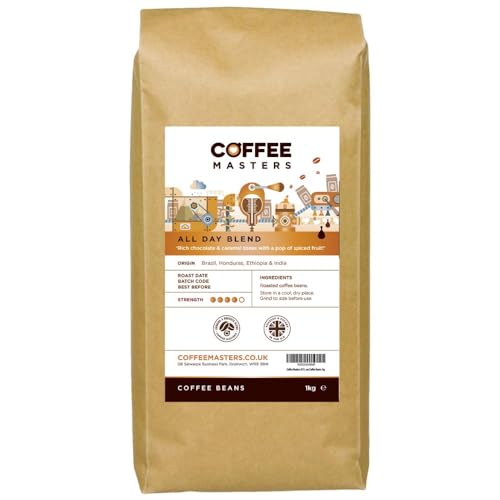
Which Coffee Beans Are the Best?
The type of beans that you choose will make an enormous difference when it is making a great cup. Each kind has its own distinct flavor that goes well with a variety of drink and food recipes.

Panama leads the pack with their unique Geisha beans that score high in cupping tests and are expensive at auction. Ethiopia and particularly Yirgacheffe bean isn't far behind.
1. Geisha Beans from Panama
If you're looking to find the top coffee
coffeee beans in the world Look at Geisha beans from Panama. Geisha beans are prized for their distinctive aroma and flavor. These rare beans, which are produced at high altitudes, undergo an unique process that gives them their signature flavor. The result is a cup that is smooth and rich in flavor.
Geisha coffee is native to Ethiopia but was introduced in Panama for the first time in 1963. Geisha coffee is known for its excellent flavor and taste. Geisha beans are also expensive due to the labor involved in growing them. The Geisha coffee plant is more difficult to cultivate than other
coffee beans bulk plants, because it requires higher elevations and unique climate conditions.
Geisha beans should also be handled with care because they are delicate. They should be sorted with care and prepared with care for roasting. Otherwise, they will turn acidic and bitter.
The Janson Coffee Farm is located in Volcan. The farm is committed to preserving the environment and specializes in producing
top rated coffee beans-quality beans. They utilize solar panels for energy, repurpose waste materials and water, and employ enzyme microbes to improve soil. They also reforest areas and utilize recycled water for washing. The coffee they make is a Washed Geisha and was awarded the highest score in a Panama
coffee bean suppliers near me Competition.
2. Ethiopian Coffee
Ethiopia is a coffee giant with a rich history of producing the best coffees in the world. They rank 5th in the number of coffee producer in the world. their beans are prized for their unique fruity and floral flavors. Ethiopians are different from other beans, are best roasted to medium roast. This allows the delicate floral notes to be retained while highlighting their citrus and fruity flavors.
While Sidamo beans are renowned for their fresh acidity, citric acidity, other coffees from other regions such as Yirgacheffe and Harar are also considered to be some of the best around. Harar is among the most famous and oldest varieties of Ethiopian coffee and has distinctive mocha and wine flavor profile. Coffees from the Guji region are also known for their distinct flavors and a distinct Terroir.
Natural Process is a different kind of Ethiopian coffee made by dry-processing, instead of wet processing. The main difference between these two methods is that wet-processing involves washing the coffee beans, which can eliminate some sweetness and fruity taste from the bean. In the past, natural process coffees from Ethiopia were less well-known than their washed counterparts, and they were mostly used to brighten blends instead of being sold as a single-origin item on the market for specialty. However, recent technological advances have made it possible to get more natural Ethiopians.
3. Brazilian Coffee
Brazilian Coffee is a rich blend of different kinds. It is distinguished by its low acidity and a silky body. It has sweet-toned flavors and the hint of chocolate. The flavors can vary depending on the region and state in which it is produced. It is also renowned for its citrus and nutty notes. It is a great option for those who enjoy medium-bodied coffee.
Brazil is the world's largest exporter and producer of coffee. The country produces more than 30 percent of the world's beans. It is a large agricultural industry and Brazil's economy depends heavily on it. Brazil has a climate perfect for growing coffee, and fourteen major areas for coffee production.
The main beans that are used in Brazilian coffee are Catuai, Mundo Novo, Obata and Icatu. These are all varieties of Arabica coffee. There are a variety of hybrids which include Robusta. Robusta is the name of the coffee bean that was first discovered in Sub-Saharan Africa. It is not as flavorful as Arabica coffee, however it is more easy to grow and harvest.
It is important to keep in mind that slavery exists in the coffee industry. Slaves in Brazil are often subjected lengthy and exhausting work days and are often not provided with adequate housing. The government has taken measures to address the issue by establishing programs to assist coffee farmers pay their debts.
4. Indonesian Coffee
The finest coffee beans from Indonesia are renowned for their dark, powerful flavor and earthy sour taste. The volcanic ash in the soil creates a earthy flavor and a robust body. They are ideal to blend with beans from Central America or East Africa that have a higher acidity. They also react well to roasting that is darker. Indonesian coffees possess a distinctive and rustic taste profile and often feature notes of leather, tobacco, wood, ripe fruit, and spice.
Java and Sumatra are the two largest coffee producing regions in Indonesia, although there is also some coffee on Sulawesi and Bali. Many farms in this area utilize a wet-hulling technique. This is different from the washed process used in most parts of the world. The coffee cherries are de-pulped after which they are washed and dried. The hulling process reduces amount of water in the coffee, which reduces the impact that rain can have on the quality of the final product.
Mandheling is among the most well-known and high-quality varieties from Indonesia. It comes from Toraja. It is a rich and full-bodied coffee with hints candied fruit and intense chocolate flavor. Gayo and Lintong are two other varieties of coffee that are sourced from this region. They are often wet hulled and have a full-bodied, smoky flavor.



